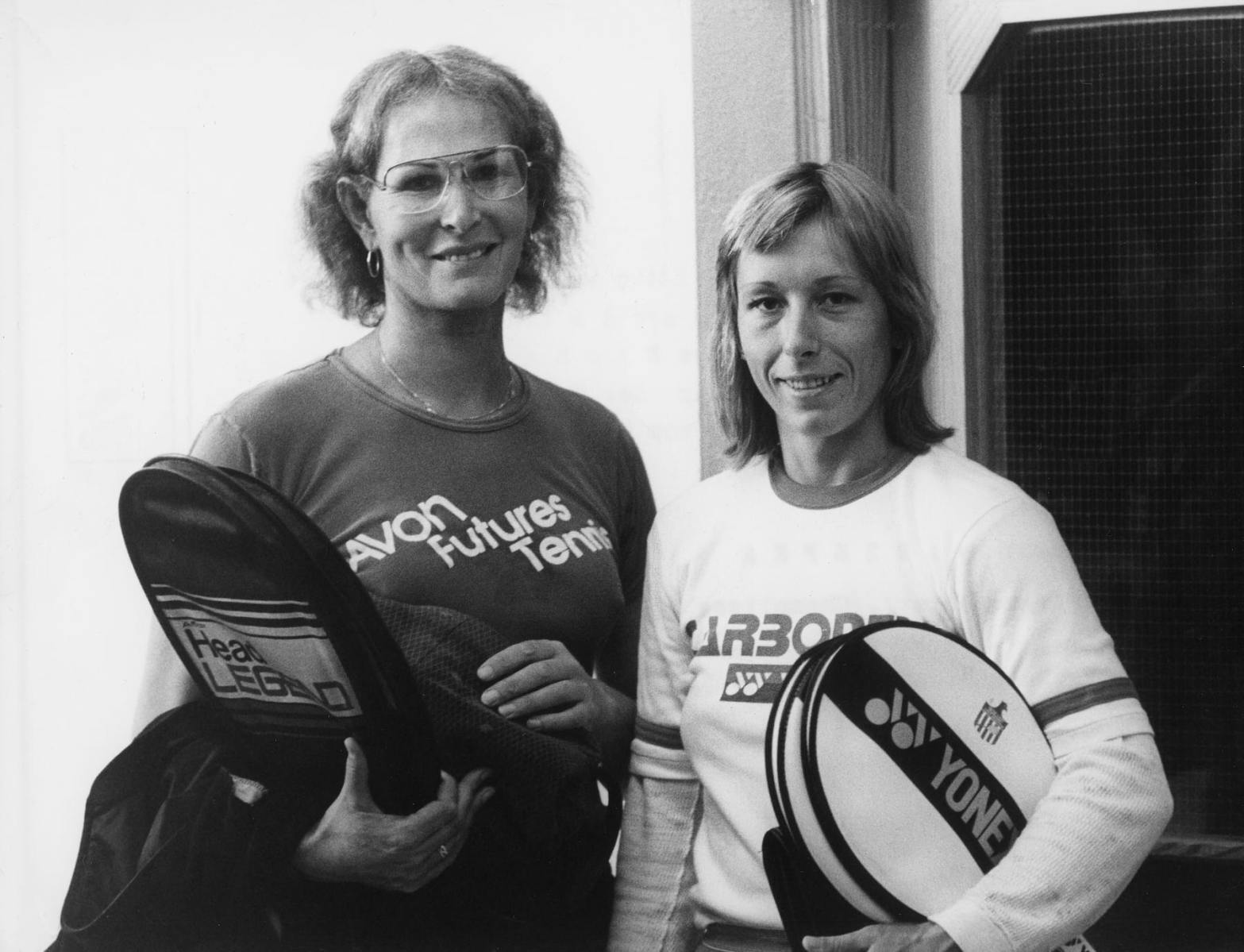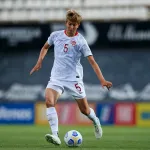The biggest red flag for LGBTQ+ advocates was that they couldn’t get in the room.
On Tuesday, a handful of scholars and elite athletes who formed the Women’s Sports Policy Working Group presented a plan they said would allow transgender youth to participate in school athletics. One by one, leaders from LGBTQ+ rights organizations RSVPed to the news conference and were denied, told that only credentialed media were allowed in.
The group, which includes tennis legend Martina Navratilova and two-time Olympic gold medalist swimmer Donna De Varona, claims to be the middle ground in a debate consuming state legislatures and agonizing equality advocates: Do transgender girls have an unfair competitive advantage in sports?
LGBTQ+ advocates have promoted policies letting transgender youth play on teams where they are most comfortable, typically with teams of the gender they identify with. Seventeen states and Washington, D.C., have adopted policies that expressly allow trans high schoolers to do just that.
The working group criticized those policies, saying they allow transgender girls with “unmitigated” testosterone to enter competitions against their cisgender peers. They propose that transgender girls compete with other girls only if they had taken hormones to medically transition and undergo testing. Trans girls who did not qualify would be forced into a third category, with their own heats, games and podiums.
“There’s an obligation for girls’ sports to develop sporting events with specific accommodations for this group as alternatives to head-to-head competition within girls’ sports,” said Donna Lopiano, founder of consulting firm Sports Management Resources and a member of the working group.
The proposal was presented as an alternative to an executive order signed by President Joe Biden that directs agencies to enforce the Supreme Court’s June 2020 finding that the Civil Rights Act of 1964, which bans sex discrimination, applies to LGBTQ+ workers. Although Biden’s order does not create policy, his directive does interpret the ruling to extend beyond employment, specifically citing, among other things, sports for children.
How are you going to claim that you’re creating a fair situation here when you’re not involving actual trans athletes?
Chelsea Wolfe
“By stating the administration’s intention to follow Supreme Court precedent and federal law, at core all the newly-elected president did was lay out what the law is and agree, unlike his predecessor, to follow it,” wrote Chase Strangio, the ACLU’s deputy director for trans justice in a blog post.
But some opponents have accused Biden of “erasing women” in the order. The working group has aimed to position themselves as the solution.
The group’s policy aims to follow testing practices in elite sports. The International Olympic Committee allows transgender athletes to to compete after medical transition, rules based on a study by transgender researcher Joanna Harper, who is a backer of the group, but not a member. Her study looked at eight transgender women runners and found that they were more than 10 percent slower after transitioning with hormones.
LGBTQ+ advocates and transgender athletes have largely denounced the working group as a disingenuous attempt to exclude trans girls, created without the input of trans athletes.
“How are you going to claim that you’re creating a fair situation here when you’re not involving actual trans athletes and actual trans people in the discussion?” asked Chelsea Wolfe, a professional BMX freestyle rider who also serves as ambassador for LGBTQ+ sports organization Athlete Ally. “It’s utterly ridiculous.”
None of the group’s six members is transgender. On Tuesday, Lambda Legal, the American Civil Liberties Union, Human Rights Watch, the Human Rights Campaign, Athlete Ally and others scrambled to alert the media to what they said was an exclusionary group. But it wasn’t just the makeup of the group, which has been the subject of media praise, that has stirred deep worry among LGBTQ+ equality organizations.
“It’s just a whole other way to target trans youth,” said Anne Lieberman, director of policy and programs and Athlete Ally.
Transgender advocates say an untold number of trans kids are already playing on their schools’ teams without issue and that trans athletes come under scrutiny only when they win — a fixation that they say betrays the spirit and intent of sports.
“The gifts that sports have given me in terms of learning, teamwork, having leadership opportunities, access to a way to consistently move my body to feel connected to my peers, I don’t know where I would be in life if I hadn’t had those experiences growing up,” said Lieberman.
The American Psychological Association recommends policies that allow transgender kids to play sports consistent with their gender identity, and notes that no study has shown that it impacts the nature of the sport. The APA declined to comment on the working group’s specific proposal.
Inclusive policies became a flashpoint in 2017, when two Connecticut track stars, Andraya Yearwood and Terry Miller, both transgender, landed in the same state. As Yearwood and Miller raced to victory, parents of cisgender girls in the state sued to bar them from competing with other girls, putting a national spotlight on the two athletes. The suits are ongoing.
Working group members say that athletes like Yearwood and Miller should be allowed to compete if they undergo testosterone suppression and hormone replacement therapies. However, the proposal comes alongside a widespread push to ban gender-affirming care for transgender youth, including blockers that allow trans youth to pause puberty. Studies have shown mixed results on the success of hormone therapies leveling the playing field in athletics, but none have been done on transgender kids experiencing puberty.
Trans youth advocates are hesitant to engage in discussions about medical transition at all. Many trans kids can put off puberty by going on temporary hormone blockers, and a number identity as nonbinary. That information, however, is private, advocates say. They worry that subjecting kids to testing is an unnecessarily invasive hurdle for participation.
They also argue that no studies have shown transgender teens actually have an advantage and that opponents of inclusion cherry-pick the few kids who win.
“What they’re asking for as a complete guarantee on winning,” Wolfe said. “And winning is not a human right. Participation in sport is a human right.”






